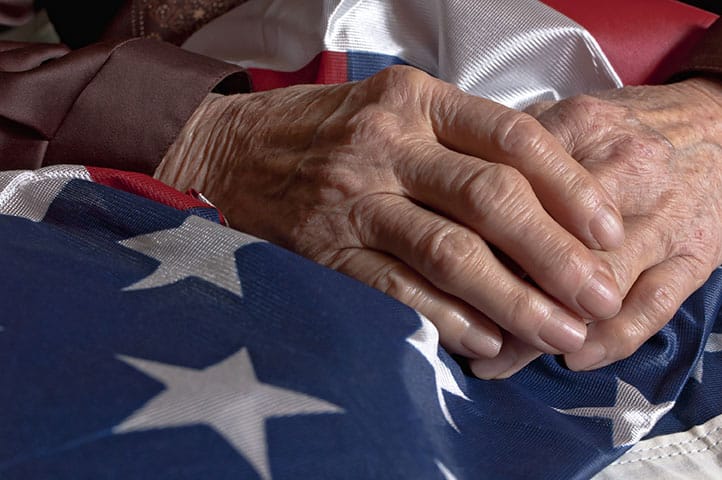The VA Aid and Attendance program is helping veterans across the nation receive home care and avoid the need for leaving their surroundings for a nursing facility. Below we discuss the details of this program and the eligibility for seniors who have served to receive these helpful benefits.
Very few people, if any, plan to spend their last days in a nursing facility. People want to remain at home. There they are surrounded by personal comforts and have control over their daily lives. Sadly, certain conditions make it untenable for some to remain at home. While disease progressions may necessitate a move to a long-term care community for safety concerns (for instance, wandering due to advance dementia), others may be forced to move because they cannot afford to receive care in their homes. Presently, there is a national push for greater funding for home and community-based services to allow more people to age in place. Often the discussion focuses on the expansion of the health insurance benefit, Medicaid; however, Medicaid is not the only benefits program that helps finance homecare. The Veterans Affairs (VA) Aid and Attendance program is another option.
VA Aid and Attendance (A&A) is a pension available to medically needy veterans and their widows. Veterans’ disabilities need not be service-connected to be eligible. Veterans with 90 days of wartime service who are blind, living in a nursing home, or meet the benefit’s definition of disability could be eligible for a monthly pension payment of up to $2,295.00 for a married veteran and $1,244.00 for a single veteran in 2021. The benefit is not without its hurdles. The applicant must have care expenses; there is a net-worth cap of $145,000.00 in 2021 and a three-year lookback period to assess whether transfers were made for less than fair value. If transfers were made, a transfer penalty is imposed.
At Rothkoff Law Group, we are here to help. We have 20+ years of experience assessing eligibility for the A&A pension and helping families navigate the application’s hurdles. Receipt of the pension gives families the financial freedom to pay for the homecare to keep a family member at home or to contribute to the cost of independent living, assisted living, or a CCRC. Ultimately, receipt of the A&A pension may be all that is required to prevent a loved one from moving to a nursing facility.
For more information about essential veterans’ benefits, please see our Nuts and Bolts Guide to Veterans’ Benefits.


